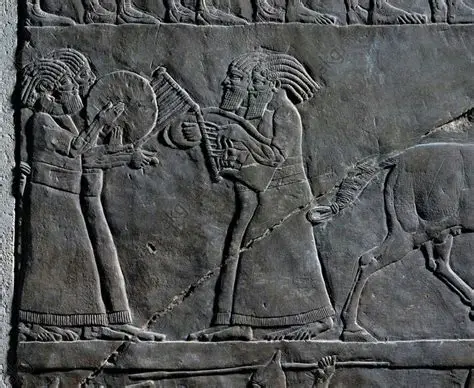The Assyrian people are often misrepresented or misunderstood in modern discourse, with some claiming that their identity is a recent construction—perhaps even a product of British colonialism. This view is both historically inaccurate and dismissive of one of the world’s oldest surviving cultures. The Assyrian identity is not a British invention; it is a continuous, evolving identity that has survived empire, conquest, and diaspora for thousands of years.
Ancient Roots: A Continuous Civilization
The Assyrian people trace their ancestry to one of the most powerful civilizations of the ancient world. The Assyrian Empire, which flourished from approximately 2500 BCE to 609 BCE, ruled vast territories from its capitals in Aššur, Nineveh, and Nimrud. Assyrian culture, language (Akkadian and later Aramaic), religion, and administration laid the groundwork for much of Mesopotamian history.
Even after the fall of the empire in 609 BCE, the population in Assyria’s heartland continued to identify with their Assyrian heritage. They adopted Christianity in the first few centuries CE, forming communities like the Church of the East, the Chaldean Catholic Church, and the Syriac Orthodox Church—all of which maintained Aramaic as a liturgical language and preserved Assyrian self-identification in one form or another.
Language, Culture, and Religion: Markers of Identity
Modern Assyrians speak dialects of Neo-Aramaic, directly descended from the language used across Mesopotamia after the Assyrian Empire’s dominance. These dialects, including Sureth and Turoyo, are still used in liturgy and everyday speech within Assyrian communities.
Religiously, Assyrians have long preserved distinct forms of Christianity that differ from both Roman Catholicism and Eastern Orthodoxy. Their liturgies, holidays, customs, and community structures have served to maintain their identity through centuries of persecution and marginalization.
The continuity in language and religion indicates that Assyrian identity is not a modern fabrication but rather an unbroken cultural and ethnic thread extending back over two millennia.
British Involvement: Archaeological Rediscovery, Not Invention
British archaeologists and missionaries in the 19th century, such as Austen Henry Layard, played a significant role in excavating ancient Assyrian cities like Nineveh and bringing them to Western attention. However, these Western figures did not invent the term “Assyrian” or apply it to a nameless people.
In fact, local Christian communities were already using terms like “Sūrāyā” and “Ātūrāyā” to refer to themselves. These terms are direct continuations of the ancient Assyrian ethnonym “Aššūrāyu.” Missionaries simply adopted the names these communities were already using and often reinforced them in Western texts.
As scholar Hannibal Travis points out, “The name Assyrian had been used by the people themselves, by neighbors, and by scholars for centuries before the arrival of the British.” British influence may have popularized the name globally, but it did not invent the identity.
Modern Nationalism and Survival
Like many indigenous and diasporic peoples, the Assyrians experienced a revival of nationalism in the late 19th and early 20th centuries. Writers and activists like Naum Faiq and Freydun Atturaya called for Assyrian unity and self-determination in the face of Ottoman persecution and the Assyrian Genocide during World War I.
These were not British-led initiatives. They were organic, internal efforts to resist assimilation, preserve heritage, and establish a national consciousness rooted in ancient memory.
Today, millions of Assyrians around the world—whether in Iraq, Syria, Turkey, Iran, or diaspora communities in the U.S., Australia, and Europe—continue to identify proudly as Assyrian. They commemorate their ancient past not because of imperial propaganda, but because it is their authentic heritage.
The idea that Assyrian identity is a modern or British construction ignores overwhelming historical, linguistic, cultural, and genetic evidence. From their ancient empire to their resilient modern communities, the Assyrians have maintained a continuous identity for thousands of years.
To suggest otherwise is not only factually incorrect but also dismissive of a people who have survived the fall of empires, religious persecution, genocide, and forced displacement—yet continue to proudly call themselves Assyrians.

